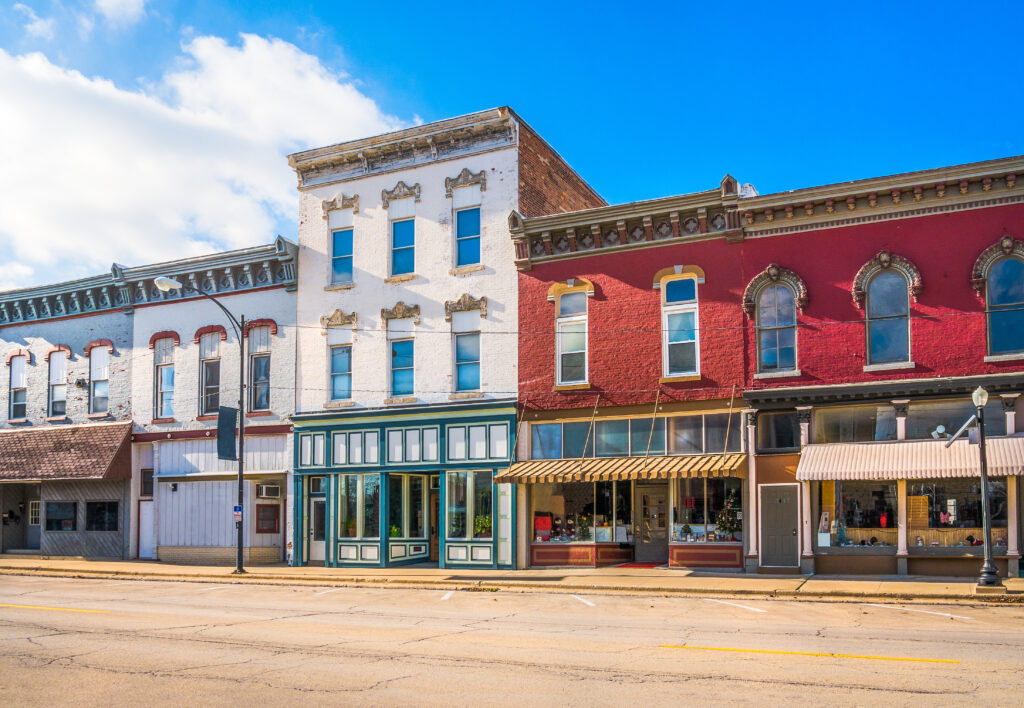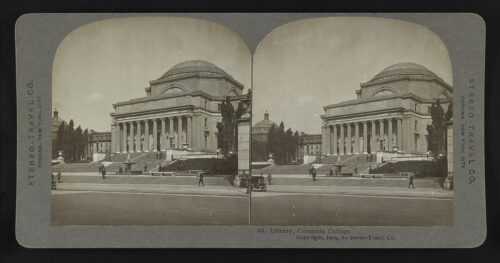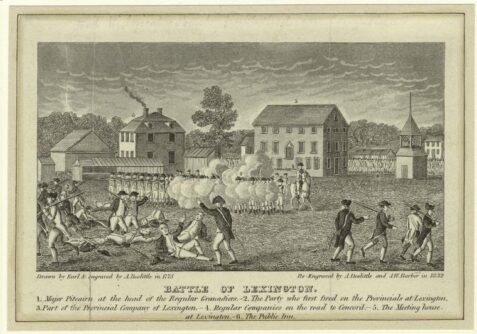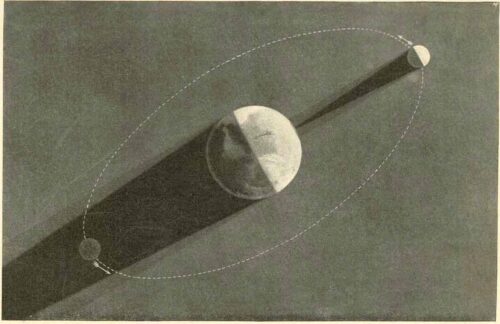Crushed under so much turbulence and division, civil society today needs its friends.
So, how went your annus horribilis?
Actually, it might be more correct to ask how goes your annus horribilis, as the savagery of 2020 has bled profusely into the current anno domini.
The casualties are plentiful and accumulating—the literal dead and disabled, norms uprooted and trampled, the public square and the schoolhouse closed until further notice, businesses wrecked, churches locked, family and friends unvisited, language debased, travel crushed, chromosomes reimagined, criminals glorified, institutions supplicating, the woke unbridled, and that is just for starters.
Taking it all in, consuming as well as one can from the firehose blast of insanity, are aghast and overwhelmed people of goodwill, solid citizens seized by angst and tribulation, desperate to consider and answer the questions: how do I respond? and what in the heck happened and why?
CIVIL SOCIETY UNDER DURESS
And then there is that deep worry for that paramount thing that made America unique and great, that means by which e pluribus unum was forged, by which freedom flourished, by which life at home, on the block, in the community, and even in the very soul was enhanced—civil society.
It has found itself under especial attack throughout this horribilis cultural passage, and, indeed, in years leading up to the prevailing crises.
True, for the benevolent and good samaritans, after these prolonged beratings and pummeling months, the utter shock of it all may have worn off. But while it remains intensely dispiriting, it is less hard, day by day, to accept the fact that in these United States, there are those who are determined to make our society less great. Or to acknowledge that there are those among us (perhaps that bright, nice kid, the one who oozed leadership potential, who went to that elite school . . . only to graduate as an anarchist—please don’t mention that he’s my grandchild!) who have heartily embraced and lustily cheer-led a mission and an “activism” to undermine the central element of this sweet land of liberty. Or that there are those (they fill our academies, funded by the well-meaning, and by the taxpayer too) who encourage and teach this principle of disdain to America’s youth.
Of thee I sing, Mr. Marx.
Here is an understatement: Civil society has enemies. They are zealous and very real. They are persistent and increasing. Some have rather powerful jobs.
A recent example: In this nation of freely associating organizations and societies, of leagues and sororities, of clubs and loyal orders, a Mr. Steven Martin serves as director of the Internal Revenue Service division that grants nonprofit tax-exempt status. Brazenly, he denied such to an applicant Christian organization whose stated mission was “to awaken, motivate, and empower ordinary believers in Jesus Christ.”
Wrote Mr. Martin in his rejection:
Specifically, you educate Christians on what the bible says in areas where they can be instrumental including the areas of sanctity of life, the definition of marriage, biblical justice, freedom of speech, defense, borders and immigration, U.S. and Israel relations. The bible teachings are typically affiliated with the Republican party and candidates. This disqualifies you from exemption under IRS section 501(c)(3).
How sad that the riches of religion have been thus reduced—at least in the eyes of misguided folks like Mr. Martin—from contemplation of the eternal to a weapon to be wielded toward narrow and partisan ends in the here and now.
Here too is an understatement: Civil society could use friends—fierce and courageous and steadfast and patriotic friends. Plentiful, and of the kind lauded in Cole Porter lyrics: if you’re ever in a jam, here I am. For civil society is in a jam, and needs people of goodwill and material to rally to it, by thoughtful means and consequential outlay, so as to protect it, buttress it, and see it reclaim its rightful and necessary and beautiful role in American life—from sea to shining sea, and not forgetting the village green.
The circumstances of 2021 may rouse one to look to another year, one held in low esteem and deemed villainous by the foes of civil society: 1776. Especially for philanthropists—doers and givers, and agents of charity—those who seek inspiration for effective responding to present calamities need look only at the final words of the Declaration of Independence, pronouncing a bracing commitment made by its signers: with firm reliance on the protection of divine Providence, we mutually pledge to each other our Lives, our Fortunes, and our sacred Honor.
That historic, mutual pledge prevailed. Important too, its spirit did not dissipate. It blossomed and became an exceptional example. Put into the welcoming hands and open minds of an independent, young America’s emerging civil society, over decades its spirit motivated and bore plentiful fruit and prosperity for the individual and the family, the community and the nation. The world too.
It can be so again. And must be.
Come 2021, it is more important, by the day, to gather Americans to civil society’s cause and preservation. For the stakes—visible, tangible, and rightly feared—are as high as they are calamitous.
OUR INFLECTION POINT
While there is no day, no year, without its consequence or character, some years—1492, 1776, 1861, 1929, 1939, 1968—strut a special stuff. They stand out, aptly meriting the honorific “historic.” They become portentous points in time, where and when trends culminate and combust, where small events force multiply, where pathologies erupt and swamp. “Life as usual” waits for another year, along with the humdrum, because these are moments that are . . . momentous. They stagger and vector society.
And so it has been with the years current and just passed, this set of destructive twins, of unimaginable truth, the kind that is stranger than fiction. Their brutal facts have forced everything and everybody—each institution and each responsible individual, and even the reluctant one—to engage in a hunkering, a choosing of sides, a taking of stock.
This is a generational inflection point for America. Now some 16 months into its drama, many are assessing not just the dogged tumult, locally and farther afield, but reflecting deeply on the specific and individual role they are to play whilst it enmeshes, and perchance conceiving a new role to play in this place yearning to be crowned by brotherhood, this place of God’s shed grace.
This dark version of an irreligious great awakening finds citizens recalibrating in order to endure, but also to renew their commitment—maybe implemented in an original and truly impactful way, maybe with a greater emphasis on community—to an outcome that American tradition envisioned for our commonweal, perhaps even making the case for a society that understands and smiles at the meaningful and simple appeal to God, country, mom, and apple pie.
A SPECIAL CASE FOR THE PHILANTHROPIST
This recalibrating is especially so for philanthropists. Why especially? Because the giving, the charity, the mission, the set-up and the governance and the mechanisms—these are the things of design, of a will, not a procreation from thin air. Serious thought has gone into the philanthropic vehicle (never mind the hard work that created bounty to be shared). At its core, likely unspoken but no less profound, was to be found a hopeful motivation for the undertaking—to make America, this home, a better place. Check that: an even better place, akin to the Constitution’s promise of a more perfect union, and an experiment in ensuring American greatness (a thing irrespective of the recent political overtones).
Concede the altruism of the philanthropic undertaking, but then consider this: the harsh reality of 2021 having pressed hard upon the donor, it leads to obvious (unavoidable?) reflections. For example: No matter—or, despite?—that largesse and benevolence, all of it well-intentioned, considered, targeted, and analyzed—the cause of American greatness is in great . . . disrepair.
Or: The plight of civil society has intensified.
One more: In the aggregate, all that giving—by one patriotic entity, by all such outfits—may have produced a lousy return on investment (to use parlance that in itself contains an existential problem for philanthropy).
The inflection point for America is the same for the individual as it is for the philanthropic institution. It requires self-reflection and consideration of the simplest of questions: what to do now?
Speaking directly of philanthropists and philanthropies, of donors and grantmakers, they did not seek the “2020 moment” and its ramifications and upheavals. But the disruptions and their combined consequence have been thrust upon all.
And so we have an opportunity.
IT KNOCKS. WILL YOU OPEN?
No, this was not a planned-for, wished-for, hoped-for thing. This opportunity comes undesired and unanticipated—an unexpected party.
But if one can find the strength to pull away from the consuming draw of the chaos, to turn off the television and radio and social media, one can—and if one is responsible, must—prioritize the need to evaluate and attune one’s charitable mission, assess its altruism and scope and effectiveness, and see in the moment a profound opening.
Upon every American donor is the time to recall the key principles of charity, subsidiarity.
Is the opportunity an obligation? There is a strong case to be made in that regard, even in this age of atomized individualism that seeks to throw off all ties of obligation to the people, places, and institutions that have made us who we are. In a sabbatical from headlines and tweets, in embracing self-honesty, one might find immense value in pondering this vital point: In the mission of advocating for American greatness, in the quest to strengthen civil society, has supporting the national come at the expense of the local?
And if so: Has it been worth it? Phrased more . . . sarcastically: Did your buck get its bang while civil society was getting banged about?
And this too may be a question to ask of the donor’s mirror: If I knew then what I know now, would I have recognized the opportunity cost, and chosen to be more impactful closer to home and to my community, and more embracing of charity that is attuned to subsidiarity?
AND WHY NOT BE ANXIOUS?
It asks much to be introspective in the midst of the storm—but even the steely soul cannot help but be anxious and concerned, even confused, by how America’s 2020-21 chaos, political and cultural, has affected every aspect of life. Philanthropy is not only not immune from such apprehension—it might be impacted all the more so. This makes utter sense: How does one advance (a verb appropriate to charity) when civil society is in retreat? Likewise, how does one reasonably and practically envision the future amidst the plentiful crises of the moment?
The catalog of what has befallen civil society, the philanthropist, and every citizen—at least those who contend that America’s July holiday is a thing to be beloved, and that this Republic’s 245th anniversary remains worthy of great celebration—includes the likes of this:
- A breakdown in the family and America’s sustaining middle class,
- The utter hypocrisy of the elites,
- Broken windows, broken businesses, and fear-stricken residents of big cities,
- A drug epidemic that has ravaged rural America,
- The spiritual crushing of the lockdown-abandoned elderly and infirm,
- Corporate and governmental intimidation of localities not conforming to partisan contrivances,
- Demands, even of our Zoom-imprisoned elementary schoolers, of self-abjuration that is based on axioms holding to implied, evil biases inherent to a particular race, as well as to the circumstances of birth, and that thing called privilege,
- Creation of a race- and gender-obsessed political theology, its woke apostles proselytizing not so much for converts as for producing penitents, demanding subjugation, refusing forgiveness to the contrite, harboring an insatiable appetite for abasement and public confessions that plead for absolution from past sins—whether of contrived commission or omission, and which count among them the vagaries of chance, biology, and pigmentation,
- Religious institutions beleaguered by persistent scandals, whether newly occurring or revealed public after decades in the shadows,
- The sharp decline of those claiming religious worship,
- Imposition of new language rules that criminalize and destroy norms,
- Pervasive demands that we trust science, yet also redefine biology and gender,
- And this catch-all that surely won’t catch all: Lawlessness, community polarization, racialized politics, oppression of free speech and association, vindictiveness and coarseness running amok in the public square, rank partisanship by once-trusted media institutions, the vilification of meritocracy, the glorification of pandemic overlords, Big Tech’s Big Brotherhood, etc.
Did we mention there was a controversial presidential election in 2020? The list, shall we say, goes on.
MORE DONOR CONCERNS
And then there are other matters which give pause to the charitable soul. What of the legislative attempts to weaken donor-advised funds, now discredited as partisan contrivances and hounded by an ideological media? What of these politicized proposals to publicize the names of contributors—a thing of intimidation, a means to keep checkbooks closed, and to engage in retroactive punishment (recall the example made of Mozilla CEO Brendan Eich, pressured to resign in 2014 over a small contribution made in 2008 to a ballot initiative supporting traditional marriage)? What of efforts to control who sits on nonprofit boards?
There is much more, such as government bureaucrats making known the tax records of targeted, private citizens. Yes, they are employed at that same politicized agency (lest we forget, Lois Lerner) employing contrived partisan rationales to assess applications for public charities.
Looking to the very woke philanthropy complex, one finds its virtue-signaling professionals advocating for grant-makers to focus on equity—a thing Naomi Schafer Riley and James Piereson argue may mimic the exploding cigar of practical-joke infamy:
For people who are worried about whether a new woke ideology has taken over philanthropy, there is good news and bad news. The bad news is that it is everywhere. From the biggest foundations to the smallest nonprofits, an agenda of racial equity and identity politics is pervasive. The good news, though, is that this ideology is so divorced from reality that it might spell the end of many of these organizations.
One can only hope.
QUESTIONS TO ASK, PRACTICES TO RUMINATE
Anxieties about the present are terribly real, but under less control than personal introspection about, and attention to, the future of existing charitable missions. While the woke and the cancel-culture dictators plumb the depths of the irrational and divisive, the foul-weather patriot of civil society must be encouraged to take time—thoughtful time—to evaluate the task of charitable engagement, of past practices and emphases, of the existence, if any, of prejudice for the national over the less glamorous communal, or for the brand name of a thing bloated (the hyper-endowed college?) over the off-radar, impactful nonprofit.
Put another way, more difficult to take on should the assessment lean toward the negative, are these related inquiries: Has my charitable giving been balanced, or in sum disposed to the national rather than the local? And if it has, given the political ascendency of doctrinaire socialism, from the legislative chamber to the lecture hall to the main streets of our cities, and given all that it has unleashed—has my philanthropy proven far less consequential than it might have been otherwise?
Considered from another introspective angle: What have my own traditions and preferences and record of philanthropy really meant—how has my giving truly mattered, as pertain to those things that, indeed, truly matter—if the recipients include those that have become beholden to dominant influences of the moment? Or have proven utterly disappointing, but have continued to receive charity out of . . . fatigue, or fear of confrontation, or habit, or insufficient attention?
As Edmund Burke said, “To make us love our country, our country ought to be lovely.” What better place to start than in one’s own home, garden, village square?
Of course, it needn’t stop there. As you and I well know, engaged citizens can (and do!) play a profoundly consequential role in shaping policy and politics at local and national levels. And certainly what happens behind closed legislative doors and in the hallowed halls of our buildings of state impacts our daily lives in myriad ways.
Nevertheless, I would submit that we have a special obligation to our own places and times that it behooves a thoughtful citizen to grapple with before looking farther afield—and it also behooves them to consider the bitter (often unintended) consequences that attend meddling in such matters. Promoting acrimony and divisiveness in our political lives does not help us become better neighbors to those who may not share our views—yet share our parks, our playgrounds, and our pews.
WHY WE FIGHT
There are many more questions to ask, points to raise, perspectives to illuminate, examples to motivate, testimonies to share.
Which is why American Philanthropic, for a decade now unswerving in its commitment to make the case for strengthening civil society, for providing sound advice to the institution and guidance to the individual, has chosen this moment the create The Center for Civil Society. As the former publisher of National Review, as someone who has served many an hour on foundation matters, who has observed the downside of charitable opportunity cost, who has befriended and been befriended by many a donor who deeply love this place of purple mountain majesties and fruited plains, no matter its contentions or crises, and who are intent to see the promises of liberty abound, I am proud to serve as the Center’s first director.
More missives are to come. This one will conclude by restating the 2021 milieu, this mash-up of events and trends, of exploration and review, of challenges and opportunities—all of them profound—is an inflection point for America. It is also a crossroads for charity. The Center for Civil Society comes forward to address a pressing need, and a thing of great consequence: to assist the donor and the doer (truth be told, to encourage them) to think through charitable giving in the light of America’s contentions, in the light of the unavoidable need to underwrite, preserve, and enhance civil society; to be aware of the opportunity costs implicit in giving; and to promote reconsideration of that fundamental that defines our nation: that we are a place of states and municipalities and many a type of legal boundary, true, but we are more so a gathering of citizens who thrive and meet and relate in communities through free association. We become who we are and give of ourselves through the PTA and the little league, the parish and the fraternal order, the motorcycle club and the sewing circle, and a near-countless list of other ways in which we live, to our fullest, lives as free men and women, in a place of unalienable rights and natural beauty, in a civil society.
Lincoln called America the last best hope of earth. This brief description and dead-on assessment harbored a bragging point (best!), but also a warning. America was a hope, not a phenomenon of permanence. And as hopes go, it is the last one.
What if hope perishes? There is no next after last.
A prophecy? At the Center for Civil Society, we will strive to see that it is not—not now, not a generation from now, not centuries hence. We remain keenly aware of the hard work and concentration needed, the many hands required, to keep America as one nation, under God, indivisible, with liberty and justice for all, and with flourishing communities at its center. That is our mission, and we are committed and determined to work with and alongside like-minded people of goodwill to preserve this special place, our home sweet home.
The Center for Civil Society provides research, trainings, and other resources that offer practical advice, ideas, and tools to help civil society leaders achieve their missions. The Center will host its first in-person conference for donors in Scottsdale, Arizona on Wednesday, November 17, 2021. Sign up to receive updates from Jack and to learn more about the Center's work promoting charity and civil society.






